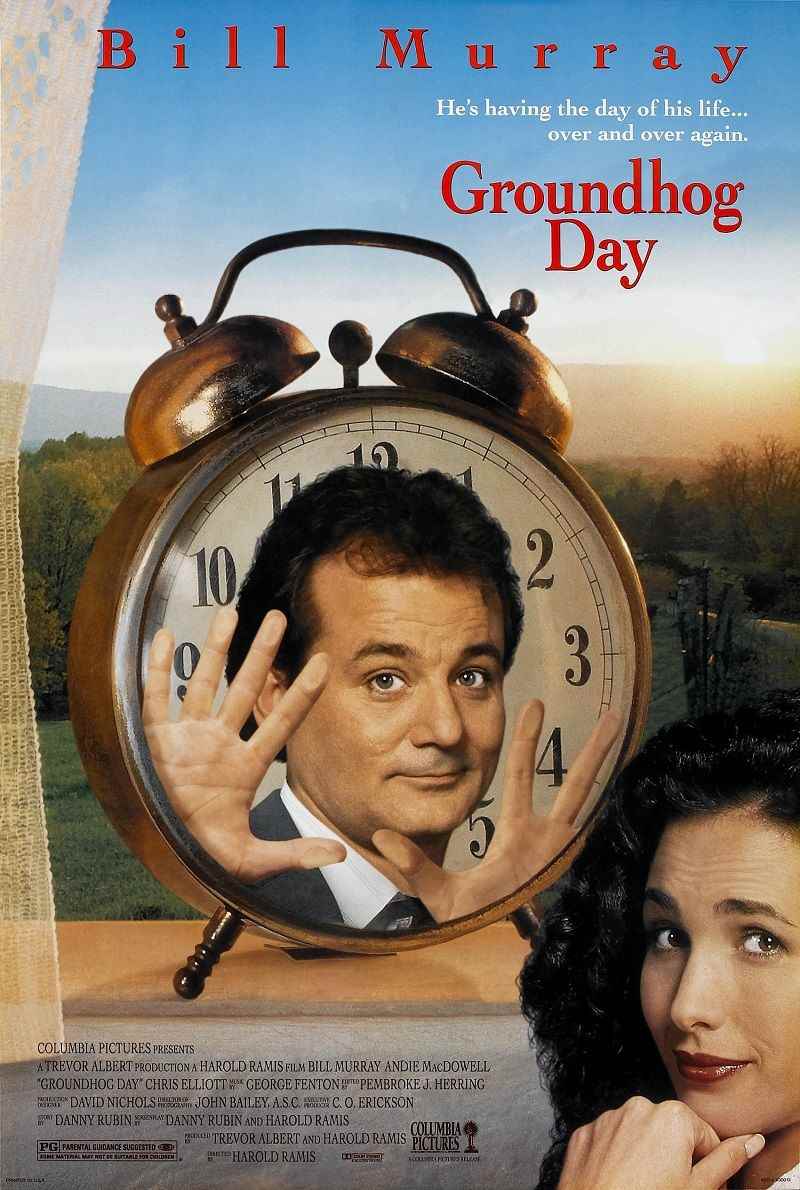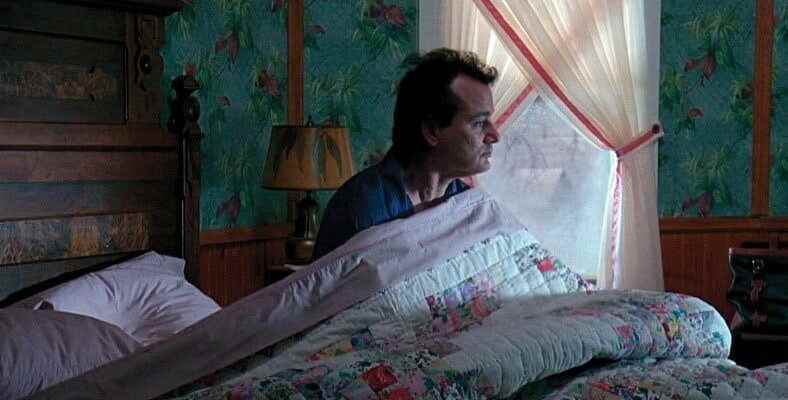Most of the time we complain about how monotonous our life is, but we don’t try hard to change it no matter how much we complain.
Groundhog Day, which I watched as an innocent romantic comedy before, came across it again while I was questioning my existence in the covid quarantine. Maybe because of the disease, maybe with years of experience, I watched it from a different perspective this time. We often complain about how monotonous our lives are. We always say that every day is almost the same. But no matter how much we complain, we don’t seem to try hard to change it. Moreover, we get used to it so much that we try to raise our children in harmony with that life, let alone stepping out of our comfort zone. We continue to feed the vicious circle.
Groundhog Day and existential pains
Just like the mythological hero Sisyphus. Sisyphus is a king of the underworld in Greek mythology, condemned to roll a huge boulder to the highest point of a hill, forever. Just as it reaches its highest point, the stone rolls down again. Sisyphus, looking behind the stone, was trying to go down and remove the stone again. According to the French philosopher Camus, what makes this vicious circle tragic is that the hero repeats in every attempt. How familiar is that?
Groundhog Day is a movie based on these feelings. Inspired by a story written by Richard Lupoff in 1973, published as 12.01 PM. In the story, while a group of scientists were trying to simulate the formation of the universe, a temporal anomaly appeared and the lottery hit our unfortunate hero, Myron Castleman. Stuck in an hour-long time loop between 12.01. .
Groundhog Day lead actor Bill Murray It begins when the cranky and cocky weatherman Phil Connors, played by , is sent to one of the rural towns of Pennsylvania to watch Groundhog Day events. Although the modest life in the town overwhelms him, he has to endure. A surprise awaits him the next morning. Now he is constantly living the same day. It is stuck in a time loop. By reliving his day over and over again, the groundhog realizes that he cannot control his life and that even the facts he is sure of are unpredictable. He cannot even predict whether there will be tomorrow. Phil, who had said to the owner of the hotel the day before, *One hundred percent chance of going today*, reduced the probability to eighty percent when he entered the loop.

“If you had to go through a day where you were stuck in the same place, what would you do to change that?” she asked a man she met on one of her days in the loop. When he asks, the man says, “You summed up my life well,” reminding us of the situation we are all in. So how does Phil endure living in this cycleIt’s like he’s going through phases of mourning… Fear, anger, bargaining, depression and acceptance. Things start to get better when he finally enters the period of acceptance. He has improved himself, started to make him happy and happy. He doesn’t care much about getting out of the loop anymore. He realized his place in the universe. [Nietsche’nin “Üst İnsan” kavramı gibi]
Is it necessary to become a superhuman to break out of the cycle, or to accept this situation like Sisyphus? I think Murakami, one of the most influential poets of our time, summed up this situation.
“After all, humans are at best a vehicle or gateway for genes. They ride us to the death like racehorses, changing horses from one generation to the next. That’s right, that’s wrong, genes don’t care. We are happy, we are unhappy, they don’t care about them. For them, we are a vehicle that leads to a goal. All they think about is what works best for them.”
As if we just accept our place in the universe and get a little inspiration from Phil’s journey…
